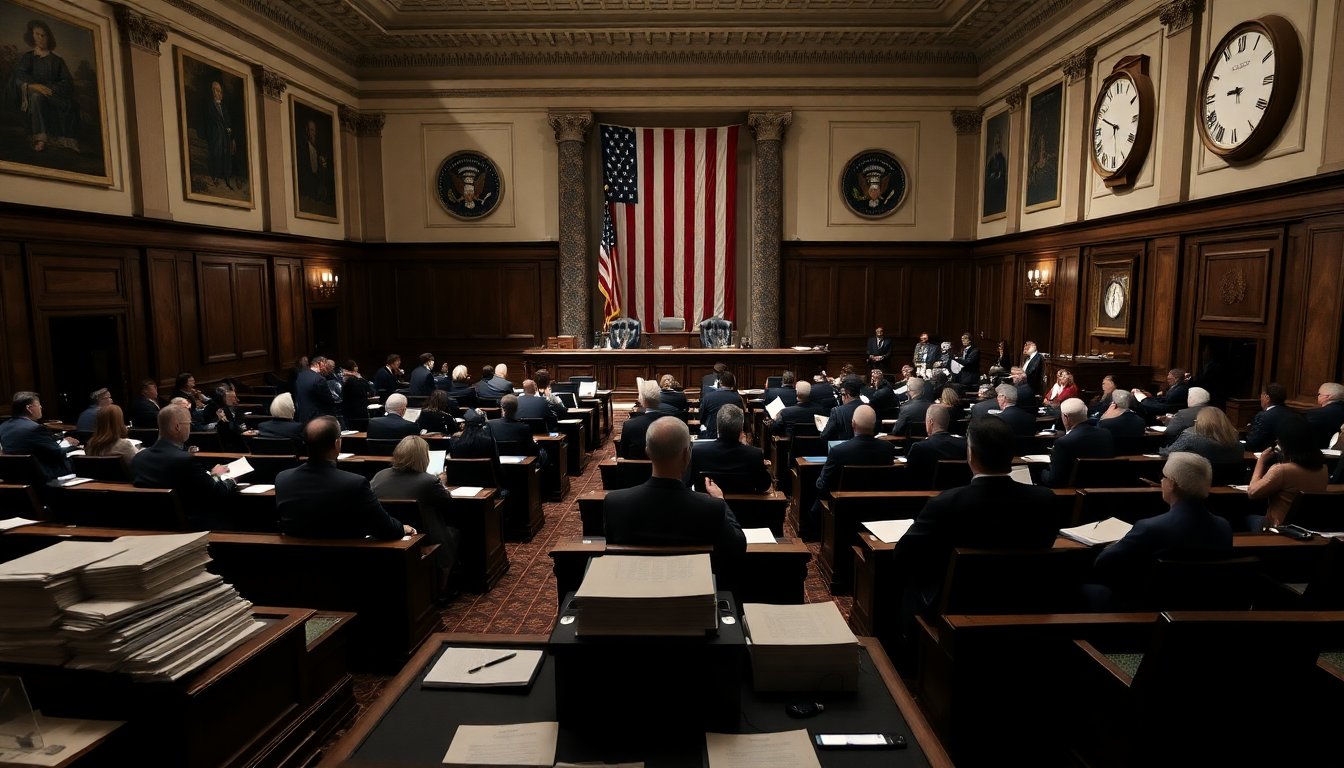Table of Contents
The recent congressional session concluded with the declaration of Donald J. Trump’s victory, marking a notable shift from the chaotic atmosphere four years earlier. This session, led by Vice President Kamala Harris, was distinguished by a sense of order and efficiency.
A streamlined electoral confirmation process
The proceedings unfolded swiftly, reflecting a well-organized approach to certifying the election results. Vice President Harris announced Trump’s victory clearly, ensuring all members of Congress were informed of the outcome. This efficiency stands in stark contrast to the lengthy debates and disruptions that characterized similar events in previous years.
Reflecting on past electoral challenges
Four years ago, the certification of electoral results faced significant contention and unrest. Intense debates and protests characterized that session, creating an atmosphere of tension. In contrast, this year’s session highlighted a collaborative spirit and a focus on unity, even amid differing political opinions.
Observers noted that the absence of drama and conflict during this year’s confirmation process reflects the evolution of the political landscape. The emphasis shifted from divisive debates to constructive dialogue about the future, suggesting a potential change in the tone of political discourse within Congress.
Implications of the confirmation
The swift certification of Donald Trump’s victory has significant implications for the Republican Party and the broader political landscape in the United States. For the GOP, this confirmation reinforces Trump’s position within the party and lays the groundwork for future political strategies. However, it also prompts questions regarding the party’s trajectory and the challenges it may encounter ahead.
Looking ahead to future elections
As the nation progresses past this session, attention will shift to upcoming elections and the impact of the dynamics established during this confirmation on voter sentiment. Political analysts indicate that the absence of controversy during this year’s proceedings could enhance public trust in the electoral process.
The smooth transition of power could foster increased bipartisan cooperation on critical issues, including economic recovery and social justice reforms. Working across party lines may prove essential in addressing the challenges that lie ahead, particularly in a politically polarized environment.
The role of the Vice President
Vice President Kamala Harris has been instrumental in ensuring that the session proceeded without disruption. Her leadership during the announcement demonstrated a commitment to maintaining the democratic process while instilling a sense of calm amid potential unrest. By highlighting the need for unity and collective progress, Harris has set a forward-looking tone that may resonate with both political parties.
Encouraging civic engagement
Encouraging civic engagement in democracy
A smooth confirmation process has sparked a growing call for increased civic engagement among citizens. Observers highlight that active participation in democracy is vital for maintaining the integrity of electoral processes. Recent experiences serve as a reminder that, despite political disagreements, the fundamental principles of democracy must be upheld.
As citizens reflect on current events, the emphasis on civic duty and participation may foster a more engaged electorate. The significance of voting and involvement in political discussions is crucial in shaping the nation’s future.
The recent congressional session confirming Donald Trump’s victory represents a significant moment in U.S. political history. The proceedings were efficient and devoid of drama, highlighting the potential for a more collaborative political environment in the future. As the nation faces upcoming challenges, the insights gained from this session may encourage constructive dialogue and greater civic engagement.


